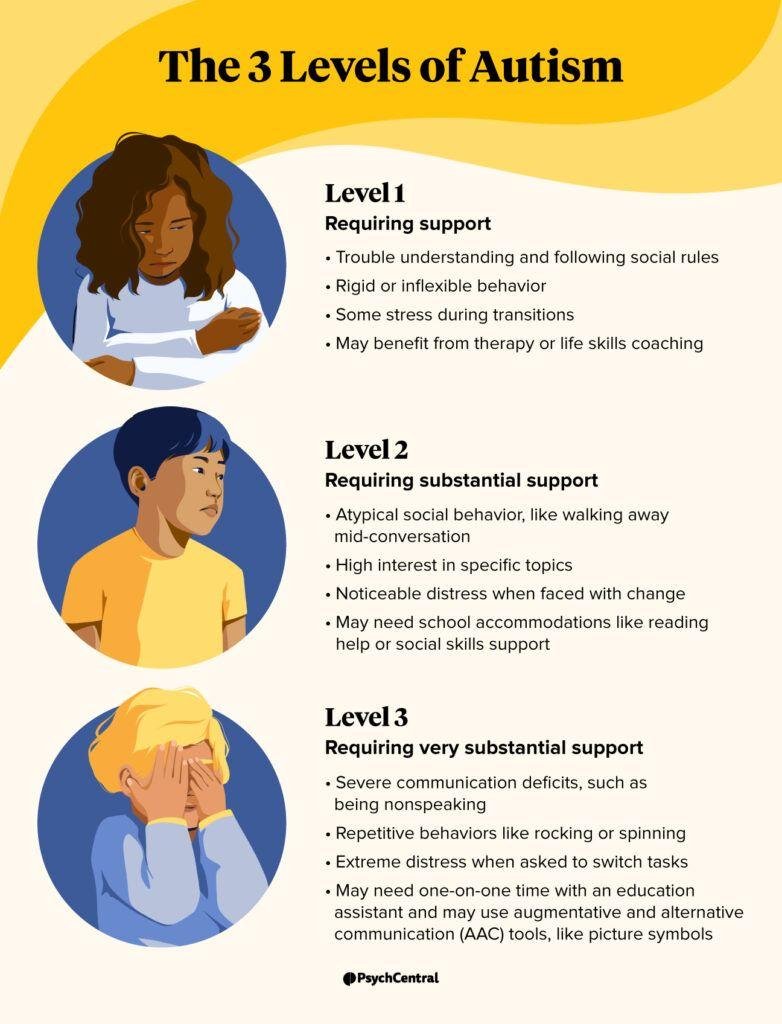As parents, we always want what is best for our children. That’s why it’s important to be aware of the early signs of autism in order to provide the support and resources our little ones may need. Autism spectrum disorder is a complex condition that affects a child’s development in various ways, from social interactions to communication skills to repetitive behaviors.
If you notice your child having difficulty with speech development, showing a lack of interest in social interactions, or engaging in repetitive behaviors, it may be worth looking into further evaluation for autism. Recognizing these signs early on can lead to early intervention, which is key in helping children with autism reach their full potential.
By being informed and observant, we can better support our children and help them thrive despite the challenges they may face. So, if you have any concerns about your child’s development, don’t hesitate to seek guidance from a healthcare provider or developmental specialist. Together, we can provide the love and care our children need to navigate the world with confidence and success.
Key Early Signs of Autism in Children
Recognizing the is crucial for parents and caregivers to provide the necessary support and intervention. Speech delays are one of the earliest red flags, alongside difficulties in nonverbal communication. Children with autism may also display a lack of interest in social interactions and struggle with understanding social cues. Repetitive behaviors and restrictive interests are common signs as well, which can affect a child’s ability to engage in typical activities. By being aware of these signs and seeking evaluation and intervention early on, parents can help their child thrive and reach their full potential.

Importance of Identifying Red Flags Early
Early identification of potential red flags for autism in children is crucial for effective intervention. Some key signs to look out for include delays in speech development, difficulties in social interactions, and repetitive behaviors. By recognizing these early signs and seeking evaluation and support, parents can help their children reach their full potential and thrive in all aspects of life. Remember, every child is unique, and early intervention can make a world of difference in their development.

Tips for Supporting Children with Autism
Understanding the early signs of autism in children is crucial for parents and caregivers to provide the best support and intervention. Lack of speech development, social interaction difficulties, and repetitive behaviors are common indicators that may suggest autism. Being aware of these signs and seeking early evaluation and intervention can significantly impact a child’s growth and development. Remember, with the right support and resources, children with autism have the potential to thrive and lead fulfilling lives.
Seeking Professional Evaluation and Intervention
It is crucial for parents and caregivers to be vigilant for early signs of autism in children to ensure timely evaluation and intervention. Keep an eye out for red flags such as delayed speech development, difficulty with social interactions, and repetitive behaviors or restrictive interests. Seeking professional help and support can make a significant difference in a child’s development and quality of life. Remember, early intervention is key to helping children with autism thrive and reach their full potential.
Wrapping Up
As parents, it can be worrying to notice signs that your child may have autism, but it’s important to remember that early intervention is key. By being proactive and seeking help as soon as you notice any red flags, you are giving your child the best chance to thrive and reach their full potential.
Remember, every child with autism is unique, and there is no one-size-fits-all approach to treatment. However, by working closely with healthcare providers and specialists, you can tailor interventions to suit your child’s individual needs and help them navigate the world with confidence.
Understanding the early signs of autism is just the first step on your journey. By staying informed, advocating for your child, and providing them with unconditional love and support, you are laying the foundation for a bright future. Remember, you are not alone on this journey. There is a community of support waiting to help you every step of the way. Together, we can empower our children with autism to shine brightly and live their best lives.


